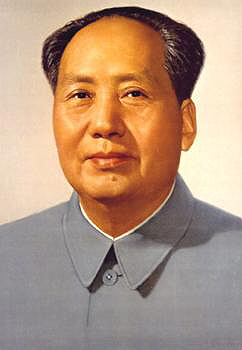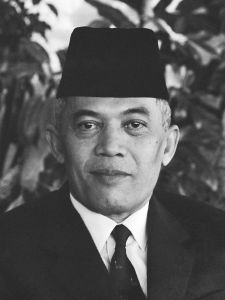Introduction
- Guided Democracy was the political system in place in Indonesia from 1957 – 1966.
- Brainchild of President Sukarno
- Sukarno believed that Western-style democracy was inappropriate for Indonesia.
- Sukarno use the traditional village system of discussion and consensus, under the guidance of village elders.
- Sukarno proposed a threefold blend of nasionalisme (‘nationalism’), agama (‘religion’), and komunisme (‘communism’) into a co-operative ‘Nas-A-Kom’ government.
- Intended to appease the army, Islamic groups, and the communists.
- With the support of the military in February 1957, ‘Guided Democracy proposed a cabinet representing all political parties
- Since then, there was no Western-style parliamentary democracy in Indonesia until the 1999 of the Reformasi era.
Establishment of Guided Democracy
- President Sukarno made an official visit to the People’s Republic of China in October 1956.
- He was impressed with the progress made there since the Civil War, due to the strong leadership of Mao Zedong, whose centralisation of power was in sharp.

Mao Zedong (December 26, 1893 – September 9, 1976), was a Chinese Communist revolutionary and the founding father of the People’s Republic of China
- Sukarno had called for the political parties to be buried.
- Initially the parties were opposed to the idea
- However Indonesian Communist Party (PKI) and Indonesian National Party (PNI) threw its support behind Sukarno.
- Sukarno envisioned that the president would guide nation at the national level.
- National consensus could express itself under presidential guidance.
- Meanwhile, the army was trying to enhance its role by establishing functional groups of its own.
- In June 1957 Nasution began trying to woo the parties’ functional groups and managed to unite the veterans groups under army control.

Abdul Haris Nasution (3 December 1918 – 6 September 2000) Appointed Army Chief of Staff and who escaped an assassination attempt during the 1965 coup attempt by 30 September Movement.
- Nasution also arrest several politicians for alleged corruption, while regional army commanders restricted party activities.
- After the failure of a United Nations resolution calling on the Netherlands to negotiate with Indonesia over the West Irian issue, on 3 December, PKI and PNI unions began taking over Dutch companies, but 11 days later, Nasution stated that the army would run these companies.
- This gave the army a major economic role.
End of Guided Democracy
- 1964 Independence Day speech, Sukarno publicly denounced the United States due to US secret intervention to support rebellion in Indonesia and the formation of Malaysia in North Kalimantan by Britain
- An anti-American campaign
- American companies were threatened
- American movies were banned
- American libraries and other buildings were attacked
- American journalists banned
- American flag was often torn apart.
- American aid was stopped.
- In August 1965, Sukarno announced that Indonesia was withdrawing from the IMF -International Monetary Fund and the World Bank,
- Jakarta-Phnom Penh-Hanoi-Peking-Pyongyang Axis is formed, and people would be armed.
- On 27 September, Nasution announced that he opposed the “Fifth Branch” and the “Nasakomization” of the army.
- 30 September 1965, six generals were kidnapped and murdered and a group calling itself the 30 September Movement.
- Crushed by Suharto and marked the end of guided democracy and of Sukarno as an effective president.
- The New Order regime established by Suharto had its own ideology — Pancasila Democracy.
30 September Movement
- The 30 September Movement/ G30S/ Gestapu for Gerakan September Tiga Puluh – for its similarity to “Gestapo”, the name of the Nazi secret police – was a self-proclaimed organization of Indonesian National Armed Forces members who assassinated six Indonesian Army generals in an abortive coup d’état.
- The army blamed the coup attempt on the Indonesian Communist Party (PKI).
- Campaign of mass killing was underway, which resulted in the death of hundreds of thousands of alleged communists.
- Under the “New Order” regime of President Suharto the movement was usually referred to as “G30S/PKI”
